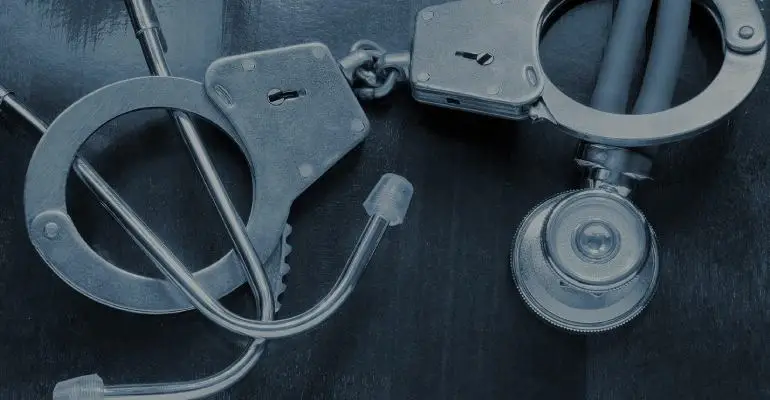Are You Protected From Retaliation Under the Florida Whistleblower Act?

Who Is Defined as a Whistleblower in Florida?
A whistleblower in Florida is someone who “blows the whistle” on his or her employer for taking part in illegal, corrupt, fraudulent, or harmful activities at their place of employment. In doing so, the whistleblower believes that the public interest takes precedence over the interest of the organization for which he or she works. That said, Florida has two whistleblower statutes— one that covers private-sector employees (those who work for private individuals or enterprises) and one that covers public-sector employees (those who work for governmental agencies).
Whistleblowers in the Private Sector
Private-sector employees who object to an activity, policy, or practice that violates a regulation, rule, or law or report or threaten to report their employers for their violations are protected under Statute 448.102 of Florida’s Whistleblower Act. However, it’s important to note that it’s not a requirement that the violation of a law, rule or regulation by the employers to be connected to the employee-employer relationship.
Statute 448.102 defines the type of employee actions that will be protected from retaliation against an employee. An employer cannot take retaliatory action against an employee for any of the following reasons:
- The employee disclosed or threatened to disclose to the appropriate governmental agency in writing and under oath that his or her employer violated a law, regulation, or rule.
- The employee provided information or testified to the appropriate governmental agency, individual, or entity that’s carrying out an investigation, hearing, or inquiry regarding a claim of a law, regulation, or rule that’s been violated by his or her employer.
- The employee objected or would not participate in the activity, policy, or practice that violated the law, regulation, or rule.
Whistleblowers in the Public Sector
The Statute (112.3187) under the Florida Whistleblower Act that protects public-sector employees is more narrowly defined and in order to secure protection from retaliation, the employee must qualify as a whistleblower and follow strict reporting requirements and timelines. It protects those public-sector employees who divulge information about suspected violations by their employers that affect the public’s well-being. In addition, the statute protects public-sector employees who divulge information about managerial abuses, wrongful actions, or criminal or fraudulent behavior carried out by their employers (see below).
Under Statute 112.3187, a whistleblower is defined as any of the following:
- Someone who disclosed information on their own volition via a written and signed complaint.
- Someone who was asked to take part in an investigation, hearing, or inquiry.
- Someone who declined to take part in a prohibited, adverse action.
- Someone who filed a written complaint with their supervisor(s).
- Someone who filed a complaint with the Florida Commission on Human Relations, the Office of the Chief Inspector General, the Agency Inspector General, or the Whistleblower’s Hotline.
It’s also important to note that the statute’s protection reaches beyond public-sector employees to “persons.” That said, when a whistleblower, whether an employee or not, is disclosing information about a public employer, he or she is only protected by law if disclosing either or both types of the following information:
- Violation of Laws or Rules: This disclosure must include the violation or suspected violation of federal, state, or local laws and/or any rules or regulations by an employee “or agent of an agency or independent contractor which creates and presents a substantial and specific danger to the public’s health, safety, or welfare.”
- Gross Misconduct: This disclosure must include acts or suspected acts of “gross mismanagement, malfeasance, misfeasance, gross waste of public funds, suspected or actual Medicaid fraud or abuse or gross neglect of duty committed by an employee or agent of an agency or independent contractor.”
How Are You Protected Under the Florida Whistleblower Act?
Under both of Florida’s whistleblower statutes, it’s unlawful to retaliate against an employee. If you’re a public-sector employee and have been subject to an adverse action at work, you must file a complaint with the Florida Commission on Human Relations within 60 days of when the alleged adverse act occurred (retaliation or firing, for example).
If you work in the private sector, you are also protected; however, if your employer has less than 10 employees, you are not guaranteed protection under Florida law. That said, there haven’t been any court decisions in Florida that found that “10 or more persons” was a required element to be protected under the Florida Whistleblower Act.
Where Do You Register Your Complaint?
Under the Florida Whistleblower Act, whistleblowers are required to file their complaint with the appropriate agency (for example, the Florida Commission on Human Relations, the Office of the Chief Inspector General, the Agency Inspector General, or the Whistleblower’s Hotline).
If you work in the private sector and have been wrongfully terminated, you must file a lawsuit within two years of the adverse action. On the other hand, if you work in the public sector, your time to file an administrative complaint is as short as 60 days and a prerequisite to filing a civil action, which may be commenced only after meeting administrative prerequisites. Time limits on when you must file a civil action vary depending on the status of the administrative agency’s investigation but may be as short as 180 days from the time of the adverse action.
Once you file a claim under the Florida Whistleblower Act, you could be entitled to any of the following remedies and/or damages:
- Reinstatement to your former position.
- Reinstatement of benefits and seniority rights.
- Compensation for lost wages and/or benefits.
- Compensation for wages you could have earned in the future.
- Compensation for attorney’s fees.
- Compensatory damages suffered due to being retaliated against.
- Liquidated damages.
It’s important to note that whistleblower cases are often quite complex, as are the statutes and the interpretation of them. Therefore, it’s in your best interest to consult an experienced workplace retaliation attorney before deciding to blow the whistle on your employer.
If you’re considering blowing the whistle on your employer or have been retaliated against for doing so, you want to be as informed as possible before deciding on the best course of action. You can get all the information you need by downloading our free guide, When Good Deeds Are Punished: Retaliation in the Workplace.
Please Note: At the time this article was written, the information contained within it was current based on the prevailing law at the time. Laws and precedents are subject to change, so this information may not be up to date. Always speak with a law firm regarding any legal situation to get the most current information available.
Related Posts
Recent Posts
- False Claims Act Retaliation & Your Rights
- Fired for Being Pregnant? 5 Situations When You Should Call an Employment Lawyer
- Can My Boss Take My Tips? The Laws of Tip Ownership
- What Does “Meets FCRA Requirements” Mean?
- Can Your Employer Contact You While on Medical Leave? Know Your FMLA Rights in Florida
Contact Us

FREE HELP GUIDES
Dealing with unpaid wages, discrimination or wrongful termination? Get the information you need to protect your workplace rights. We offer employment law resources to help you fight for workplace justice.









